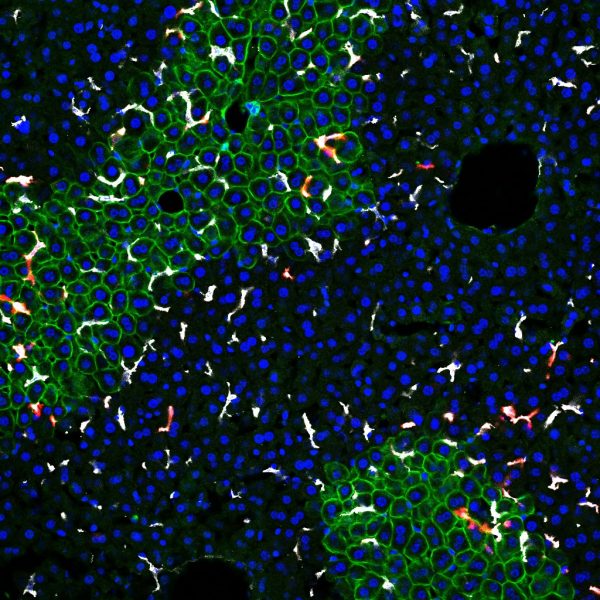Reprogramming liver metastases
We are employing vectors to genetically engineer cancer and immune cells to explore new therapeutic interventions and unravel new biological insights.
Cancer cells often spread to distant organs, including the liver, originating metastases. Liver metastases drive cancer progression as well as resistance to pharmacological treatments and are associated with poor overall survival. Therefore, it is of pivotal importance developing effective treatments against liver metastases. Our current research aims at developing gene-engineering techniques that by targeting liver macrophages activate the immune system, limit metastatic spreading, and leverage conventional cancer therapy, such as cancer immunotherapy and targeted therapy. To this aim, we have engineered viral vectors that convey powerful cytokines to the liver. Furthermore, we are employing genetic interventions to overexpress or knockout genes of interest in liver macrophages to study their contribution to tumor progression.
High tittering and purity in lentiviral vector stocks, as well as cell-specific transcription and post-transcription regulatory sequences in the vector design drive targeting efficacy and specificity. Liver-directed genetic engineering provides a new therapeutic intervention to thwart liver metastatic spreading in patients at risk and enable systemic immune activation thus limiting tumor progression.

